Buying wine can feel as opaque as Mourvèdre. Luckily, there are highly trained and passionate sommeliers to help guide us along the wine journey. Five of the best sommeliers in the exceedingly vibrant wine market of Washington, D.C. agreed to share their perspectives on the qualities that define a good sommelier, indicate how they got started, and provide their expertise to answer some of our burning questions. So, grab a glass, and drink in the wisdom of our wine experts.
Winn Roberton, Head Sommelier at Bourbon Steak DC
Miranda Franco (MF): "How did you get started as a sommelier?"
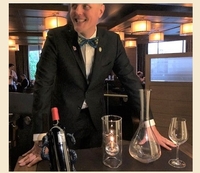 Winn Roberton (WR): "I was drawn to food and the dining culture early on and met amazing sommeliers, so the wine bug was quick to follow. All the components of it."
Winn Roberton (WR): "I was drawn to food and the dining culture early on and met amazing sommeliers, so the wine bug was quick to follow. All the components of it."Miranda Franco (MF): "How did you get started as a sommelier?"
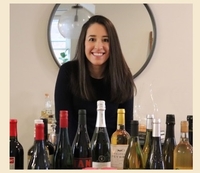 Stephanie Carrillo (SC): "I still consider myself as getting started. In 2017, I left a corporate career to travel around the world in hopes of finding my true passion. Along the way, I worked at a tiny organic vineyard in the Southwest of France, which reinvigorated my love for wine. Since then, I’ve done as much reading, studying, staging, and drinking as possible. This year I became a WSET Diploma Candidate and started my online wine store, Rose Creek Wine. At Rose Creek, we highlight women winemakers and wines from producers who craft small-batch, terroir-driven, minimal intervention wines."
Stephanie Carrillo (SC): "I still consider myself as getting started. In 2017, I left a corporate career to travel around the world in hopes of finding my true passion. Along the way, I worked at a tiny organic vineyard in the Southwest of France, which reinvigorated my love for wine. Since then, I’ve done as much reading, studying, staging, and drinking as possible. This year I became a WSET Diploma Candidate and started my online wine store, Rose Creek Wine. At Rose Creek, we highlight women winemakers and wines from producers who craft small-batch, terroir-driven, minimal intervention wines."–Does it smell or taste like a wet newspaper or a wet dog? Or an icky moldy cardboard/ basement? (This is an indication of TCA or cork taint);
–Is the wine fizzy when you’re sure it’s not supposed to be a sparkling wine? (This is an indication of a secondary fermentation happening in the bottle);
–Does it smell like eggs or sulfur? (The wine is reductive and could probably benefit from some decanting);
–Does it have a brownish tinge to it? Does the description indicate the wine should be bright and youthful, but it’s dim/ taste like rotting fruit or vinegar on the palate? (The wine is oxidized and possibly had a faulty closure.)"
Sauvignon Blanc, Cabernet Sauvignon, Pinot Noir, and Rosé."
Miranda Franco (MF): "Is the wine list theory true that the second cheapest bottle on the menu is the worst value?"
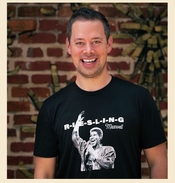 Brent Kroll (BK): "I think this is an old retail theory, but I don’t really see this applied."
Brent Kroll (BK): "I think this is an old retail theory, but I don’t really see this applied."Miranda Franco (MF): "How did you get started as a sommelier?"
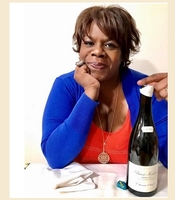 Nadine Brown (NB): "I came to wine by accident. I am from Jamaica originally and went to high school in Puerto Rico and came to the states to attend college in Boston to get a degree in social work. I always wanted to work with kids and families, I did that just for a few years before moving to DC. I moved back home, although it wasn’t really home at the time. When I left Puerto Rico to go to Boston, my family left Puerto Rico and came to DC. I tried to find a job in the social work field, and it was difficult. 1997 DC was very different from what it is today. Then one day, I saw an ad in The Washington Post for a host for a new French restaurant opening on Capitol Hill (Bistro Bis); no experience needed, and I thought, why not? I will do this for a couple of months and then go back in September and continue my social work search, which was 24 years ago."
Nadine Brown (NB): "I came to wine by accident. I am from Jamaica originally and went to high school in Puerto Rico and came to the states to attend college in Boston to get a degree in social work. I always wanted to work with kids and families, I did that just for a few years before moving to DC. I moved back home, although it wasn’t really home at the time. When I left Puerto Rico to go to Boston, my family left Puerto Rico and came to DC. I tried to find a job in the social work field, and it was difficult. 1997 DC was very different from what it is today. Then one day, I saw an ad in The Washington Post for a host for a new French restaurant opening on Capitol Hill (Bistro Bis); no experience needed, and I thought, why not? I will do this for a couple of months and then go back in September and continue my social work search, which was 24 years ago."
"I fell in love with restaurants. I fell in love with the chaos; every day was the same but different. I quickly moved up from the host stand and became the office manager, where I would type up the list of daily specials, much of which was in French. I had a copy of the Food Lovers and Wine Lover’s Companion beside me, so I could look up all these classic French terms I didn’t know. I also found history fascinating, regarding both food and wine, and I first came to wine from reading. Wine is an endless series of rabbit holes of history, geology, chemistry anthropology—all of which my ADHD brain loved. When I left Bistro Bis after only four years, I was a floor manager and had taken my first wine course. I left management and started waiting tables, allowing me more time to focus and study wine. I would work a lunch shift, go to a trade tasting or seminar on my break, then come back and work dinner. I have certificates through the Wine Spirit Education Trust (WSET) and the Court of Master Sommeliers (CMS). I’ve worked at several restaurants, but my longest tenure was wine director of Charlie Palmer steak on the hill, where I was for 14 years from 2003 to 2018."
MF: "What are the most important characteristics that go into making a good sommelier?"
NB: "Being a good listener, I call myself a translator. I’m here to listen to you describe what you’d like to drink and make recommendations. Great Somms always retain some humility, knowing that even most Masters don’t know everything and that it’s an endless journey of learning. A good somm remembers, especially in a restaurant, that it’s a business, and your job is to make money. But a great somm is hospitality driven and genuinely wants to add to the overall experience if they’re in a restaurant setting."
MF: "What bottle stopped you in your tracks and got you serious about wine?"
NB: "There were a couple of bottles. I was fortunate early on to get introduced to some of the best wines in the world, primarily from wine collectors. I would say Billecart – Salmon Brut Rosé, and a Quarts de Chaume, from the Loire Valley."
MF: "How do you build a balanced wine list?"
NB: "To remove yourself from the list a bit. Of course, you should put your own stamp on the list and have wines you enjoy and that are also trending, but remember you were making selections for hopefully thousands of people coming through your door, and you want to have things that they will enjoy."
"My number one rule is to have good wines that are well-made. Also, returning to my point about listening, having a variety of things for my guests to enjoy. Also, providing balance in price points is also important because wine is for everyone."
MF: "What is the best way to interact with a sommelier?"
NB: "Interesting question. I think it might depend a little bit on your level of wine knowledge. But no matter what – don’t be intimidated, and hopefully, you only encounter somms that don’t make folks feel intimidated. If you are a novice and worried about it, maybe look at the wine list ahead of time to get an idea of what’s on there, and then use a somm to help narrow things down. Tell them things that you have enjoyed in the past. Be forthright and upfront about how much you want to spend. They’re discreet ways to do this if you’re engaged in a business dinner or on a date. Use their expertise to your advantage."
MF: "What should a customer do if they don’t like what they ordered after they’ve tasted it, even if there’s nothing technically wrong with it?"
NB: "That’s a tough one. On the one hand, wine is not like a shoe you can take back because it’s the wrong size, but on the other hand, life is too short to drink wine you don’t enjoy. Remember that the restaurant is a business, and be considerate about it. I’ve had tables order my coveted 30-year-old Cabernet (a $450 bottle) and try to send it back because they said it tasted old."
"Sometimes you have to make it work and take it as a learning experience. If you have a relationship with somm or the restaurant, you can try being candid about it sometimes. They can figure something out and use the rest to sell by the glass or, you know, bring you a glass of something else, so be gracious, tactful, and considerate."
MF: "What are the biggest faux pas that customers tend to make when ordering and drinking wine?"
NB: "I’m pretty liberal with almost everything across the board. It’s the customer’s experience, I’ve decanted boxed wines before, I’ve brought ice cubes to tables that want me to put it in their wine. It’s your wine, your money; you should enjoy it your way."
"I’m going to bring up being considerate again here; we had a generous corkage policy at Charlie Palmer where you could bring in bottles, and sometimes people take advantage, and a party of eight with everyone bringing two bottles and I would spend a big chunk of time servicing them and tons of glasses later, to the detriment of other tables that were waiting for my help."
MF: "Does the shape of your wine glass really matter?"
NB: "No, it doesn’t, but yes, it does. This might not make sense, but one of my most memorable wine experiences was working 100-point wine dinners. One of the wines was a 1990 Château Latour; all the somms were on a break, and there was some wine left in the bottle, and all we had were red Solo cups and Papa John’s Pizza. The wine might have shown better in the proper glass, as it was pretty young. However, that memory is also special because of the setting and that cup. I probably could have appreciated the nuances of the aroma and had it opened up better, but that wasn’t what it was about at that moment."
"There are certain wines or grapes where I think it matters more. Does it matter for my $9 Sauv Blanc, Tuesday night wine? Not really. It does matter in Champagne, even from a scientific standpoint of how the bubbles rise to the top and when they explode and release aromatics—which is why the flutes and the coup are bad for Champagne. I think Pinot Noir is another one that benefits from the correct glass."
"I have a six-year-old and 11-year-old who always breaks things; I have friends who have $60 glasses. Not me – I don’t get too hung up on glasses at home. However, at work in a restaurant setting, more so because it is part of good service, but I don’t think I need a separate Barolo glass and one for Chianti."
MF: "How should we taste wine when the sommelier pours a bit in our glass for sampling?"
NB: "Don’t overthink it. Some people smell it, then gesture to pour. You’re just making sure it’s not corked or any other flaws. Maybe checking for temperature. I always worked with the Court of Master Sommeliers service standards where I had a wine table, and we smelled or tasted every bottle before we served it, so if there was an issue, it didn’t even get to the table."
"Most important is to approve the bottle. Is it what you ordered, the right vintage? The right wine? The somm should also be voicing all the details at this time. Sometimes mistakes are made in the transaction, from when you order the wine, to the Point-of-Sale system, to who pulled the wine…. Verify!"
MF: "What wines are most frequently ordered?"
NB: "It’s a broad question. I’ve worked in steakhouses in big lobbyist, Capitol Hill-type places where Cabernet Sauvignon was "King," followed by Pinot Noir. I couldn’t give white wines away sometimes, but I think that’s changed in the last couple of years as people have become more adventuresome. Also, sparkling wines of all types are having a moment."
MF: "Is the wine list theory true that the second cheapest bottle on the menu is the worst value?"
MF: "If you could only drink one wine for the rest of your life, what would it be?"
NB: "Worst question to ask a Somm! I’m going to say Vega Sicilia from Spain or, Alsatian wine."
MF: "What myth would you like to banish from the wine world?"
NB: "That sweet wines are inferior to other wines and that people that enjoy sweet wines are all novice drinkers who don’t know any better. Some of the best and longest-lived wines in the world are sweet. When done right, they are magical."
MF: "What’s your favorite food and wine pairing?"
NB: "Soft scrambled fresh eggs with too much shaved white truffle with aged white Burgundy."
MF: "What’s the hardest food and wine match?"
NB: "There’s a wine for almost every food. Vegetables like asparagus and artichokes can be challenging, as can foods with a lot of spice and fermented foods. In this case, I often open up the wine category to include ciders."
MF: "What is the most overrated wine on the market right now? The most underrated?"
NB: "I never want to name names for the most part. At least not in print. I also genuinely think people should drink what they like, and you know, who I am to say? I think the style of almost flat, cookie-cutter, sweet reds with little soul is a bit overrated."
"Some wines from other states are underrated. I was disappointed recently to see that Wine Enthusiast magazine has chosen to only review wines from five states and dropped all others. Some great wines come from places that you might not expect, such as Maryland, Texas, and Michigan, to name a few. I think it’s really important to support these regions and these families so that American wine continues to improve for centuries to come.
MF: "What wines are you buying to enjoy personally during your time off?"
NB: "I’ve been educating myself on natural wines, low intervention wines, and wines from less familiar areas such as Jura and the Azores, as well as exciting wines from wherever—like Maryland Albariño, and Beaujolais."
Miranda Franco (MF): "How did you get started as a sommelier?"
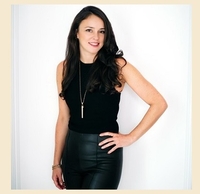 Niki Lang (NL): "I blame my Abuela from Spain for my love of wine. My professional path started with blind tasting classes led by David Kurka while I worked at The Butcher’s Block [part of Brabo at the time], then bartended at Cork Wine Bar and passed intro CMS."
Niki Lang (NL): "I blame my Abuela from Spain for my love of wine. My professional path started with blind tasting classes led by David Kurka while I worked at The Butcher’s Block [part of Brabo at the time], then bartended at Cork Wine Bar and passed intro CMS."
MF: "What are the most important characteristics that go into making a good sommelier?"
NL: "Organization and determination."
MF: "How do you build a balanced wine list?"
NL: "Have something for everyone and make people happy by providing all different styles. Lateral wines to classic styles are a fun way to expand and connect with guests."
MF: "What is the best way to interact with a sommelier?"
NL: "Ask questions! Know how to articulate what you like so you can communicate it effectively. Sommeliers love to help with that process."
MF: "What should a customer do if they don’t like what the ordered after they’ve tasted it, even if there’s nothing technically wrong with it?"
NL: "Same answer as the previous question – ask questions! Know how to articulate what you like so you can communicate it effectively. Seriously, sommeliers love to help with that process."
MF: "What are the biggest faux pas that customers tend to make when ordering and drinking wine?"
NL: "My favorite: “I’ll take the house wine.”
MF: "Does the shape of your wine glass really matter?"
NL: "Yes. Somewhere between 75% and 95% of what we commonly think of as taste actually comes from the sense of smell. For example, Champagne flutes or coupes are the WORST. Use a white wine glass."
MF: "How should we taste wine when the sommelier pours a bit in our glass for sampling?"
NL: "Swirl…Sniff…Sip."
MF: "What wines are most frequently ordered?"
NL: "Depends if you are at a white tablecloth dinner or a local wine bar with rotating themes."
MF: "Is the wine list theory
